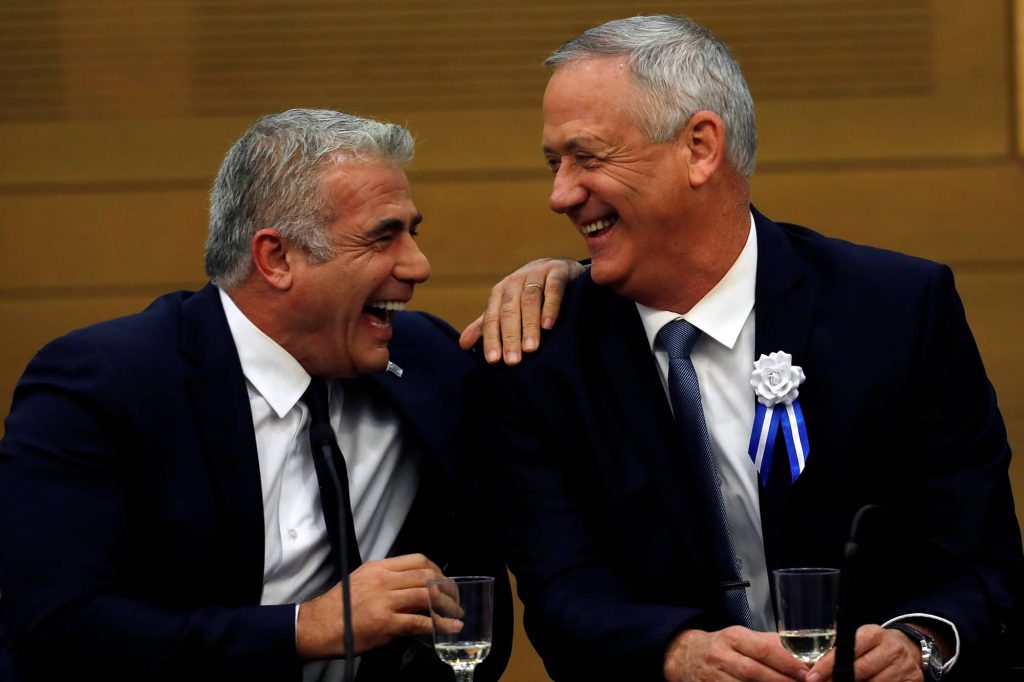In June 2022, the Knesset—Israel’s parliament—voted in favor of disbanding in preparation for new elections scheduled for November 1, 2022. These will be Israel’s fifth round of Knesset elections in three years, and the public is reluctant to head to the polls again. Even the opposition tried at first to see if it could knock together a new majority coalition based on the existing party line-up. As head of the opposition and of the largest party, Benjamin Netanyahu tried to tempt members of the present governing coalition—specifically, Defense Minister Benny Gantz—to jump ship and join him. This would have saved the country more than half a billion dollars in direct and indirect election expenses, but there were no takers.
The fifth round, like those before it, brings out partisan fissures that have formed during the last decade. While many of the political slogans still speak of left and right, Arabs and Jews, occupied land and proud patriotism, the real issues that now divide Israeli society are no longer shaped by the post-1967 dichotomy of “Peace Now” versus “Greater Israel.” The political battles have come to resemble those in other, “normal” Western societies, which do not face existential questions of ruling over territories populated by another people.
Security is still very much on the national agenda, but the Palestinian issue is no longer uppermost on the minds of most Israelis. Therein lies a paradox. National and personal security are first priorities for Israelis and have always been so. But the prospects of resolving the Palestinian question and the problems relating to Israeli rule in Palestinian territories are no longer a daily concern. Slowly but surely, politicians on both sides have set aside hopes for peace and for an end to the Israeli–Palestinian conflict and have normalized the notion that it is possible to live on without determining the future of the two peoples living side by side.
Why is this a paradox? Because the Israeli defense establishment, as a whole, knows that there is a causal link between the sense of insecurity and the systemic avoidance of the issues attendant on a permanent status agreement. People fear terror but do not wish to talk about what drives it. They want a Jewish majority state but ignore the future implications of the emerging mix of Israeli and Palestinian lives beyond the Green Line absent a political resolution of the conflict.
In September 2010, while flying to a White House summit that was to be held with the Palestinians and hosted by President Obama, then Prime Minister Netanyahu delivered a powerful peroration to the journalists accompanying him, seeking to convince them how deeply committed he was to resolving the Palestinian problem. Earlier in June 2009, Netanyahu had addressed the need for a two-state solution in a speech at Bar Ilan University. He had sent envoys to speak to the Palestinian leadership. Yet all these efforts came to naught. Netanyahu changed course: from conflict resolution to conflict management, to a mode of living with the problem. At the same time, he reduced the salience of the issue among the Israeli public. It worked. Today most Israelis no longer choose their elected representatives based on their views about the future of the West Bank.
Today the critical issues facing the Israeli electorate are domestic—the court system, religion and state, education, the economy, distribution of wealth. More and more politicians and opinion makers use Western tropes like liberalism and conservatism, thus recognizing that the Palestinian-centered left versus right dichotomy is no longer relevant. The right is now proud of its conservative struggle to transform the existing democratic foundations of Israel and the immense effort to reshape the court system.
Netanyahu’s personality cannot be detached from these transformations. He adroitly drew to his cause the Israeli conservative camp, which looks upon the judicial proceedings against him as a test in which they must prevail, even at the cost of undermining public trust in the institutions of the state. This camp has been working in recent years to delegitimize the institutions of the rule of law, arguing persistently that Netanyahu was wronged and framed by unsubstantiated indictments.
If once upon a time the law enforcement agencies were targeted by fringe elements on both ends of the spectrum, today it is targeted by the largest party in the Knesset, the Likud, whose mainstream speaks openly about the changes it would make to the legal system. No more subtle hints and empty promises; there is now a work plan for transforming the system, from the investigative police all the way to the judges and the courts. All this feeds into a campaign marked by nationalist themes, “restoring national pride,” led by conservative right-wing parties who made themselves into Netanyahu’s loyalists and seek to fire up his base.
On the other side of the divide, the left wails to the high heavens. Comparisons of Netanyahu with populist leaders like Orbán in Hungary and Erdoğan in Turkey have become commonplace. A recent study, conducted by a research center that seeks to promote political stability, found that for the voters of the “Anyone But Bibi [Netanyahu]” camp—the parties that make up the present governing coalition, right, left, and center—the highest priority is the viability of Israeli democracy. In other words, their fear is of an Israel transformed by conservative forces.

Prime Minister Yair Lapid and Defense Minister Benny Gantz. Photo credit: REUTERS
Multiple questions arise in the run up to the November 1, 2022 elections. Will the slogan “Anyone But Bibi,” which fueled the politics of his opponents, still be relevant the day after—if again the results are a debilitating draw? Or will Netanyahu’s bloc garner the 61 seats necessary to establish a right-wing conservative government, ready to implement dramatic changes in the court system? Will Netanyahu be willing to undermine Israel’s democratic foundations in order to halt the proceedings against him? Or will Prime Minister Yair Lapid and Defense Minister Benny Gantz do the impossible and find 61 members of the next Knesset (the minimum needed to form a majority in the 120-seat chamber) to reinstitute the present coalition? No definitive answers can be given at this point. One thing is certain, however; demographic data of the National Bureau of Statistics and the findings of think tanks all agree that the only sociopolitical element that will significantly grow in number in the coming years is the conservative religious camp.
These tectonic changes are taking place amid a political environment torn between Netanyahu’s loyalists and detractors. We see Member of Knesset Itamar Ben Gvir, once convicted of incitement and support for a radical anti-Arab terror group, now a regular presence on mainstream televised debates and capable of winning seven seats, according to recent polls. We also see a historically significant Israeli Arab politician such as Mansour Abbas, who led an unprecedented disruptive act by bringing his Islamist party into an Israeli coalition, now being castigated by Netanyahu and his loyalists as a “supporter of terrorism.”
Israel is on a fast track toward a fifth election—more divided and quarrelsome than ever—not over building or removing an outpost or a settlement in the West Bank, but over democratic values and the moral vision for the future of the nation.

